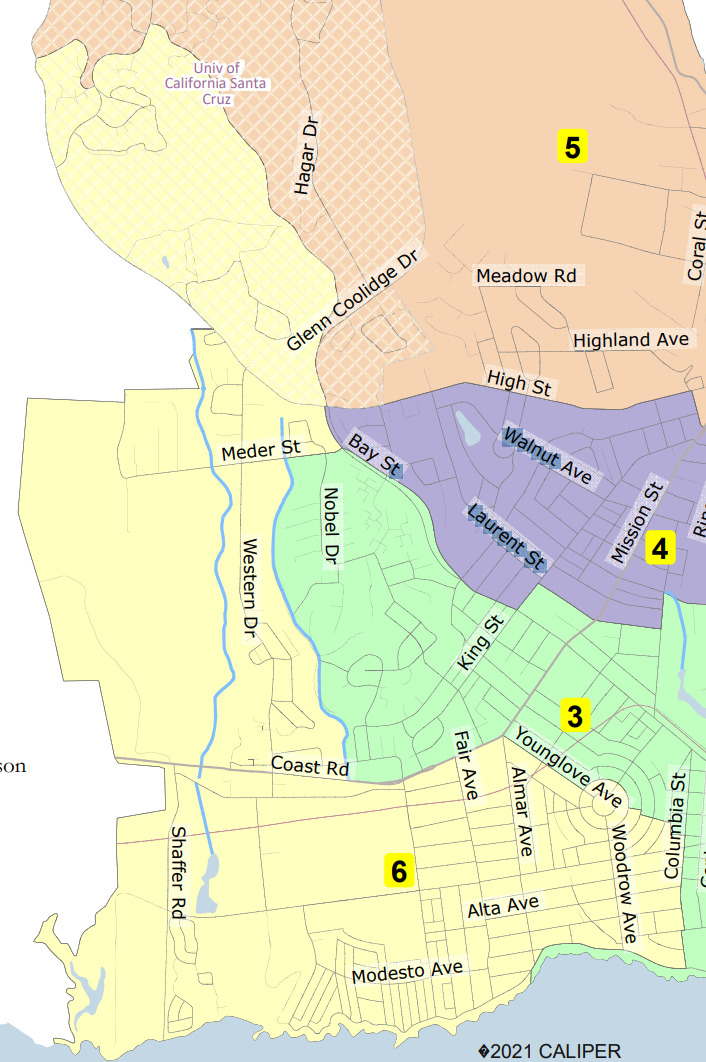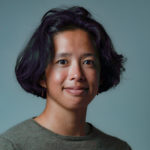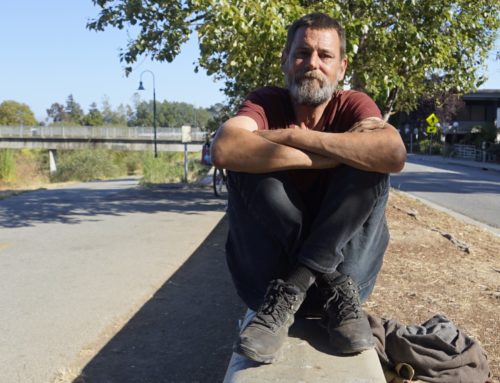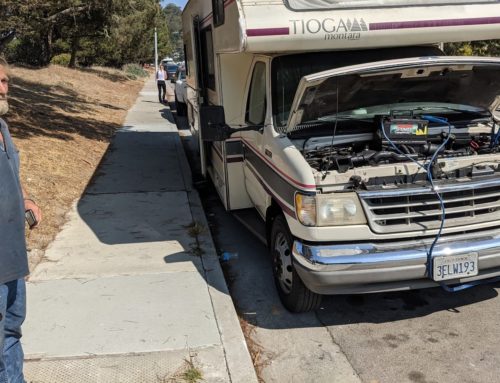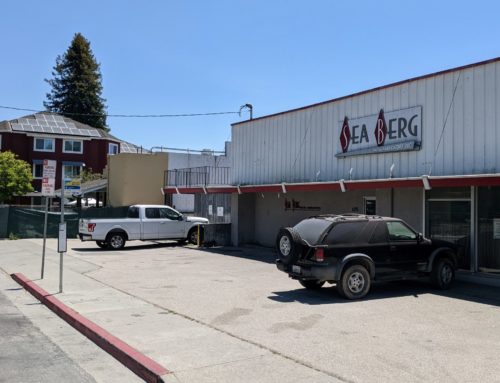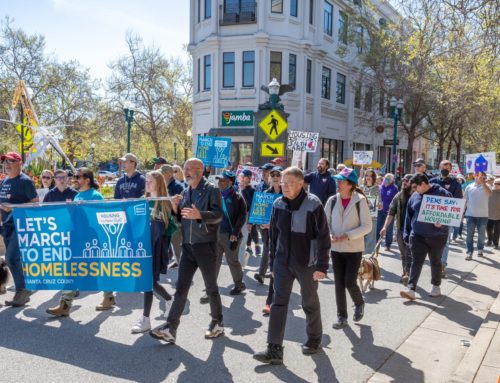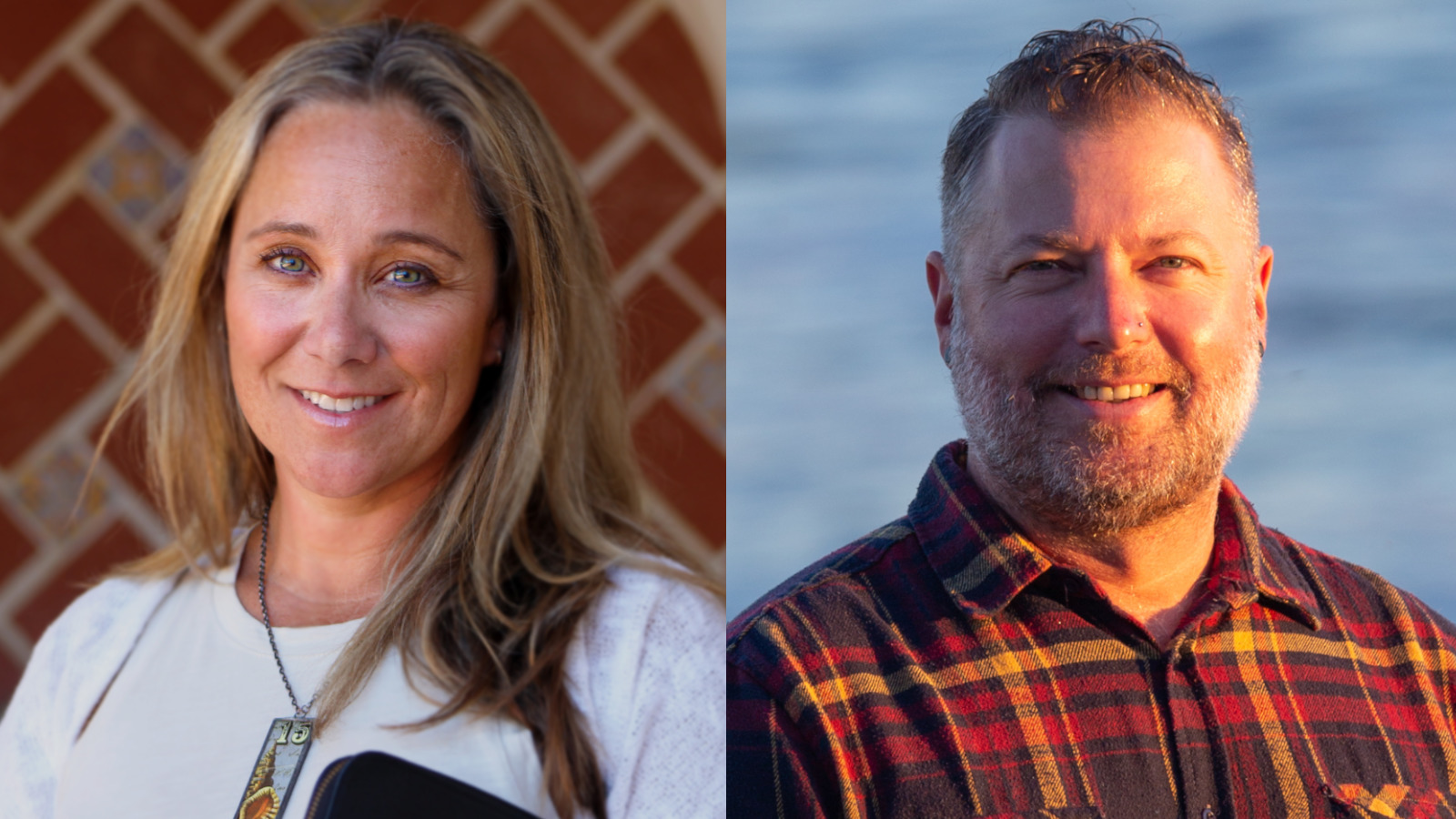
Renee Golder and Sean Maxwell are vying for the District 6 Santa Cruz City Council seat in the Nov. 8 election. (Contributed photos)
Read Santa Cruz Local's Election Guide
We meet two candidates for Santa Cruz City Council: Renee Golder and Sean Maxwell. They’re running for the District 6 seat on the Nov. 8 ballot.
You’ll vote in the District 6 council race if you live in these areas: areas of the Lower Westside west of Younglove Avenue and Columbia Street; areas along Western Drive; and a western part of the UC Santa Cruz main campus.
We explain what a council member does. Then we press the candidates on the issues important to Santa Cruz residents.
Related stories
- Santa Cruz Local’s Election Guide
- Santa Cruz Local’s Election Guide for Santa Cruz City Council
- Podcast: Meet the Santa Cruz City Council District 4 candidates (Oct. 25, 2022)
- Podcast: Ahead of Nov. 8 local election, Santa Cruz County residents share priorities (Sept. 27, 2022)
- Santa Cruz voters list priorities for candidates (Sept. 26, 2022)
- Watsonville voters ask for youth and family activities, rent help (Sept. 26, 2022)
- Capitola voters discuss their priorities for Nov. 8 local election (Sept. 26, 2022)
- Scotts Valley voters share priorities for local election (Sept. 26, 2022)
Santa Cruz Local’s news is free. We believe that high-quality local news is crucial to democracy. We depend on locals like you to make a meaningful contribution so everyone can access our news. Learn about membership.
Transcript
ADVERTISEMENT: This episode of Santa Cruz Local is sponsored by UC Santa Cruz. UC Santa Cruz is proud to help lead the international team that produced the first complete, gapless sequence of a human genome. With this effort, UC Santa Cruz is supporting important advancements to understand genetic diseases, human diversity, and evolution. UC Santa Cruz: The real change is us.
[THEME MUSIC]
KARA MEYBERG GUZMAN: I’m Kara Meyberg Guzman. This is Santa Cruz Local.
In today’s episode we’ll meet two candidates for Santa Cruz City Council. They’re running for the District 6 seat. If you live in District 6, you’ll see them on the Nov. 8 ballot.
This seat is new. Santa Cruz now has district elections for city council. That means the city is divided into six geographical districts. Voters from each district will choose a representative from their district. In this election, voters across the city will also choose a mayor who represents the whole city.
You’ll vote in the District 6 council race if you live in these areas:
- Much of the Lower Westside. That’s areas west of Younglove Avenue and Columbia Street.
- Areas along Western Drive.
- And a western part of the UC Santa Cruz main campus.
I’ll put a link to the district map in the show notes.
A seat on the city council is powerful. The council creates the city’s laws. They decide how the city spends taxpayer money. They also oversee the city’s functions, like the police department and the water department.
The council role is a part-time job. The salary is about $20,000 a year. The job often takes 20 hours a week, sometimes more.
Now let’s meet the candidates: Renee Golder and Sean Maxwell. If you live in District 6, you can choose one of them.
Renee Golder is 44. She’s the principal of Bay View Elementary School. She also serves on the Santa Cruz City Council. She was elected in 2020.
Here’s why Renee Golder is running again.
RENEE GOLDER: I think locally, issues that still are concerning to me are again, around public safety. I think water and resources and open spaces and parks are something that are really important to me, and I really want to keep working to preserve and protect and utilize things responsibly. And I think obviously, housing is a big issue. And so those would be my probably top three. And you know, obviously, addressing homelessness is part of, kind of, all of those things, so that too.
KMG: Sean Maxwell is also 44. He is a general contractor and carpenter. He serves on the Santa Cruz Planning Commission. He joined the commission in 2020.
Here’s why Sean Maxwell is running.
SEAN MAXWELL: I think representation is the biggest one. As a long-term renter and someone who has two children and is a working, family person. And seeing a lot of my fellow young families have to leave this area. It’s come to my attention that we need representation for that type of people in Santa Cruz. We’re still here. And I think we still need, we need a voice.
[MUSIC]
KMG: Santa Cruz Local has much more information about each candidate on our Election Guide. It’s at SantaCruzLocal.org/Vote.
Our team wants to press the candidates on issues important to Santa Cruz residents. That’s why this year, our team interviewed and surveyed 140 Santa Cruz residents. We asked them what they needed from local government.
The top themes we heard were:
- A need for affordable housing.
- A desire for solutions to homelessness.
- And a need for help with rent.
Let’s hear what the candidates said about affordable housing. It was the top theme that we heard from residents.
Some voters told us there is too much market-rate housing being built and not enough affordable housing. Do you agree? How should the city council handle market-rate housing proposals?
Here’s Renee Golder. She talks about Santa Cruz’s RHNA goals. That stands for Regional Housing Needs Allocation. They’re housing construction goals from the state.
RENEE GOLDER: I think there needs to be housing at all income levels. I also think that you know, our RHNA goals are at all income levels. It’s our obligation to build it at all income levels. We have been focusing as a city council for the past several years in providing those “low” and “very low” and affordable units.
And we’ve got several projects in the pipeline. They’re not in my district, currently, right now. But they’re the ones that at (Pacific) Station north and south, the mixed-use library and affordable housing unit. There’s several others that are going to be coming online. There’s the units at the Housing Matters campus that are permanent supportive housing. There’s going to be redevelopment down at Jessie Street and some additional affordable housing being built there.
And so yes, we do need affordable housing. And yes, we do need market rate housing. And I also think that we need something called workforce housing, that we haven’t previously had. And I’ve been working with the school district on Measures K and L. And taking property that the school already owns and building some workforce housing to keep our school our schools staffed with people that can’t necessarily afford market (rate housing but) wouldn’t qualify for low income or affordable housing because they make too much in this weird, like, middle bracket, right. And I think the university partnering with them in some way to also get some workforce housing for people in that income bracket as well. Because, you know, it’s it’s an interesting thing when you look at like AMI, but then you look at family size, or people’s salary steps. And it’s like, there’s a big group of people that make too much to qualify for affordable (housing), but they don’t make enough to purchase a home. And that’s another group where I think we need to take a look at and develop for.
KMG: Golder referred to AMI. That stands for area median income. Here’s Sean Maxwell. Same question. Some voters told us there is too much market-rate housing being built and not enough affordable housing. Do you agree? How should the city council handle market-rate housing proposals?
SEAN MAXWELL: Yes, so this is very near and dear to me, as I’m a planning commissioner for the last two years. My main goal right now is to increase affordable housing for working-class people: low- and very-low-income people in this town.
I know that the landscape has changed with the state bills that have passed the housing crisis bill SB 330 and SB 9. And we’re now into the world of objective standards where, you know, we cannot prohibit development without having these objective standards, which our city has been doing a very amazing job. It’s a huge project. So what’s going on now is that we, with the market-rate housing, we’re never really, there’s gonna be there’s developments, so many developments on the horizon.
So I don’t think that’s the issue, is building market-rate housing. The real issue is, are we going to be building enough “low” to “very low” affordable housing? We’re seeing a lot of people have to leave. We can’t even house the working-class people that literally work in this town. They have to come from Watsonville, come from out of the area to work here.
KMG: Sean Maxwell told us he thinks there’s too much market-rate housing being built in Santa Cruz. He talks about a plan that would allow more housing Downtown. It was advanced by the city council in June. The plan would extend Downtown Santa Cruz. It would allow one building at 17 stories near the Kaiser Permanente Arena. Three buildings would be allowed at 14 stories. For comparison, the Palomar building is seven stories.
SEAN MAXWELL: Someone has told us there’s too much market rate, and I agree there is too much being built. It’s not just the amount. It’s the style of building. Do we want to have 17 stories downtown? Do people really realize how tall 17 stories is in Downtown Santa Cruz right now? I don’t think so.
What we need to do is be responsible with our development and the way we’re developing. Not just saying, not just rubber stamping anything the city says, but holding the city accountable and listening to the neighbors and engaging with the people in those communities where that building is going to be built. That’s another huge part of it. You know, I feel like there is this need, we have a need, it’s very clear. But how we go about doing it is, is the process, is really, really important. And without that process, you’re gonna have people really upset.
KMG: Election Day is Tuesday, Nov. 8. If you’re registered to vote in Santa Cruz, you should have received your ballot by mail. You can also vote in person at any vote center in our county. If you need to register, or need to get a ballot, find details on Santa Cruz Local’s Election Guide. Our Election Guide also has much, much, much more about each candidate and the issues. Visit SantaCruzLocal.org/Vote. That link is in our show notes.
One thing worth mentioning is Renee Golder’s voting record. From January through October, there were 20 council meetings. Golder was absent for large parts of eight meetings.
We asked Golder why. We asked: If you are reelected, will these absences continue? How will you prioritize your service on the council?
RENEE GOLDER: I don’t know if the readers realize, but the council isn’t really like my main source of income. I have a full-time job, like every other council member. And when the meetings are 16 hours long, it’s not reasonable to ask somebody to sit that long. And so I sat down with Matt (Huffaker) after he got hired. And I said, I am not going to prioritize taking time away from my students at school to be at meetings where I’m just hearing somebody come in, and take three minutes of my time, every week.
And there’s things on there that I think are not relevant to city business. And there’s a lot of time wasted, in my opinion, at the council meetings. There’s things that shouldn’t be on the agenda. And so I made it really clear that — and to the mayor, and to the staff, — that my priority is my job at Bay View just like every other council member has priorities, right?
And so I will be there when it’s something that absolutely needs me there during the school day. But if not, I will be there in the evening. And I don’t know how long some of your readers have been in town. But meetings didn’t used to be this long. This is a fairly recent phenomenon. And there’s no way to make it shorter, other than council members curtailing what they say, or having less items put on the agenda. Since as a council member, I’m not making the agenda, the only control I have is to say what time I’ll be there. And if they want me there for that part of the meeting, they can put that item at that time of the agenda. And so that’s where I’m at.
[MUSIC INTERLUDE]
KMG: Santa Cruz Local does this work because we love Santa Cruz County. We want our Election Guide to be useful for you. We believe our local democracy works better when everyone is watching and involved, especially with elections.
This work takes time and money. All of Santa Cruz Local’s work is free. We are supported by our members. Our members donate starting at $19 a month or $199 a year.
I invite you to support Santa Cruz Local with a membership today. Go to SantaCruzLocal.org/Membership. The link is in our show notes.
If you use the Patreon app, you can also donate to us there. Just search for Santa Cruz Local.
[MUSIC]
Thank you to all our members. Thank you especially to our highest-level members.
- Elizabeth and David Doolin
- Fran Goodwin
- Jim Weller
- Debra Szeicei
- Chris Neklason
- Patrick Reilly
- Cove Britton
- And Jacob Meyberg Guzman
A big thank you to our freelance reporter Grace Stetson. Grace interviewed the candidates for this episode.
Thanks to Trimpot for the music.
I’m Kara Meyberg Guzman.
Thanks for listening to Santa Cruz Local.
Questions or comments? Email [email protected]. Santa Cruz Local is funded by members, major donors, sponsors and grants for the general support of our newsroom. Our news judgments are made independently and not on the basis of donor support. Learn more about Santa Cruz Local and how it is funded.
Santa Cruz Local’s news is free. We believe that high-quality local news is crucial to democracy. We depend on locals like you to make a meaningful contribution so everyone can access our news. Learn about membership.
Kara Meyberg Guzman is the CEO and co-founder of Santa Cruz Local. Prior to Santa Cruz Local, she served as the Santa Cruz Sentinel’s managing editor. She has a biology degree from Stanford University and lives in Santa Cruz.

